- DETERRENCE: Addressing the transnational nature of nuclear incidents
- DPRK: N. Korea won’t break nuclear stalemate with diplomatic maneuvers
- ENERGY SECURITY: What’s going on at Kudankulam?
- GOVERNANCE AND CIVIL SOCIETY: North and South Korea inch toward reopening joint complex
- CLIMATE CHANGE ADAPTATION: Ensuring Australia’s urban water supplies under climate change
- AUSTRAL PEACE AND SECURITY: Do we need an Indo-Pacific treaty?
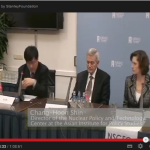 DETERRENCE: Addressing the transnational nature of nuclear incidents, Togzhan Kassenova, NNSGEG workshop, Amman, Jordan (14 November 2012) [PDF, 0.5MB]
DETERRENCE: Addressing the transnational nature of nuclear incidents, Togzhan Kassenova, NNSGEG workshop, Amman, Jordan (14 November 2012) [PDF, 0.5MB]
Many believe that a nuclear terrorist act will occur in a Western city. Non-nuclear weapon states will not embrace nuclear security because Western states fear nuclear terrorism. However, nuclear terrorism may occur anywhere, and will have a truly global impact. The latter is the best basis for UNSCR 1540 commitments.
- Creating a Nuclear Security Framework Convention, Shin Chang-Hoon, NSGEG: Responsibility Beyond Rules: Leadership for a Secure Nuclear Future (4 April 2013)
- UN atomic agency chief says much nuclear theft may go undetected, Associated Press (1 July 2013)
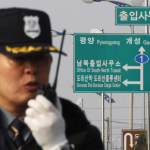 DPRK: N. Korea won’t break nuclear stalemate with diplomatic maneuvers, Global Times (8 July 2013)
DPRK: N. Korea won’t break nuclear stalemate with diplomatic maneuvers, Global Times (8 July 2013)
North Korea appears to be on a dual-track “Charm Offensive” by engaging China three times in rapid succession. North Korea also engaged Russia in talks as well as engaging South Korea in economic discussions over the Kaesong industrial complex. North Korea offered to engage the U.S. in talks, but the offer simply reiterated terms which had previously been rejected.
- Russia urges North Korea to help enable new international talks, Reuters (7 July 2013)
- North and South Korea reach Kaesong deal, Financial Times (7 July 2013)
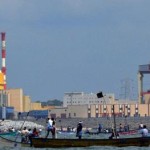 Energy Security: What’s going on at Kudankulam? M. Ramesh, The Hindu (23 June 2013)
Energy Security: What’s going on at Kudankulam? M. Ramesh, The Hindu (23 June 2013)
Indian officialdom has been saying repeatedly for over two years now that the Russian reactors in South India have been complete and “ready to start” in days. Few people trust the authorities to say anything meaningful anymore, and specific concerns about faulty valves and cabling are out in the open. The insanity continues, even among the saner ones, in the name of saving the earth even if it means dealing with a Chernobyl or a Fukushima now and again. Even if people have a blind faith in nuclear power technology in anybody’s hands, at any cost and with any kind of oversight (or lack of), does nobody bother any more about attacks or diversion to WMD? This is not about 1960s but 2060s.
- Seeking constructive debate on nuclear energy, Andrew C. Revkin, DotEarth Blog, New York Times (13 June 2013)
- Nuclear’s strong future amid challenges, Mary Jo Rogers, Nuclear Power International (June 2013)
- Bangladesh to join atomic energy talks in Russia, The Daily Star (20 June 2013)
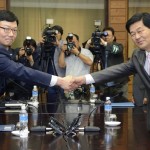 GOVERNANCE AND CIVIL SOCIETY: North and South Korea inch toward reopening joint complex, Madison Park, CNN (9 July 2013)
GOVERNANCE AND CIVIL SOCIETY: North and South Korea inch toward reopening joint complex, Madison Park, CNN (9 July 2013)
The ROK and DPRK will allow businesses to return to the Kaesong complex to collect any finished goods and other products while continuing discussions on a full re-opening. The ROK stressed that agreements must be kept to build trust, while others warned that the ROK is repeating past mistakes. In another sign of thawing tensions, the ROK and DPRK are working to field a unified Korean team for a 2015 sporting event.
- Second working-level meeting on Kaesong to be a touchstone for inter-Korean relations in the future, Kang Tae-ho and Gil Yun-hyung, Hankyoreh (9 July 2013)
- UN sport advisor ends North Korea trip: State media, AFP (9 July 2013)
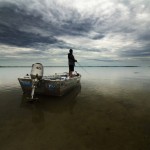 CLIMATE CHANGE ADAPTATION: Ensuring Australia’s urban water supplies under climate change, Policy guidance brief 2, NCCARF (2013) [1.35 MB, PDF]
CLIMATE CHANGE ADAPTATION: Ensuring Australia’s urban water supplies under climate change, Policy guidance brief 2, NCCARF (2013) [1.35 MB, PDF]
A challenge in the next few decades will be maintaining security of water supply in South-west Western Australia (SWWA) regional towns and rural communities under the effects of climate change. To date, supply shortfalls have been met by increased groundwater pumping, temporary pipelines and tankering. There is a considerable risk that demand will exceed supply under climate change in future. Recent modelling of water supply demand compared to existing supply sources, taking into account projected rainfall trends, shows a deficit of 315 GL/year by 2060.
- Research portfolio factsheet 3: water resources, NCCARF (2012)
- The South-West Western Australia sustainable yields project, CSIRO’s Water for a Healthy Country Flagship and Western Australian Government’s Department of Water (2013)
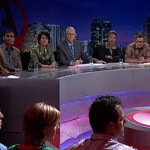 AUSTRAL PEACE AND SECURITY: Do we need an Indo-Pacific treaty? Natalie Sambhi, The Strategist (8 July 2013)
AUSTRAL PEACE AND SECURITY: Do we need an Indo-Pacific treaty? Natalie Sambhi, The Strategist (8 July 2013)
Indonesia’s constructive Foreign Minister Marty Natalegawa, supported by his president, is strongly promoting cooperative security approaches to head off a reprise of Cold War regional division of Southeast Asia. A deficit of strategic trust, erupting territorial claims, and superpower competition require an Indo-Pacific treaty, so that regional states will start to think of themselves as members of a community responsible for common security.
- An Indonesian perspective on the Indo-Pacific, Marty M. Natalegawa, Minister for Foreign Affairs, Republic of Indonesia (16 May 2013) [PDF, 2.2MB], Video (from 23 min.)
- Statement at conclusion of Australia-Indonesia Annual Leaders’ Meeting, Kevin Rudd, Prime Minister of Australia (5 July 2013)
- More than beef, boats & Bali (Jakarta-recording session), Q&A: Adventures in Democracy, ABC Television (4 July 2013) [transcript and video]
The Nautilus Peace and Security Weekly Report presents articles and full length reports each week in six categories: Austral security, nuclear deterrence, energy security, climate change and security, the DPRK, climate change adaptation and governance and civil society. Our team of contributors carefully select items that highlight the links between these themes and the three regions in which our offices are found—North America, Northeast Asia, and the Austral-Asia region.
Subscribe to NAPSNet to receive free weekly email reports
Editor
Contributors
- Deterrence: Peter Hayes
- Governance and Civil Society: Dyana Mardon
- Climate Change Adaptation: Saleem Janjua
- DPRK: Roger Cavazos
- Energy Security: Nikhil Desai
- Austral Peace and Security: Richard Tanter

